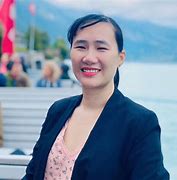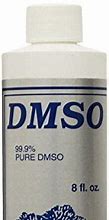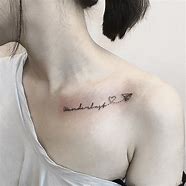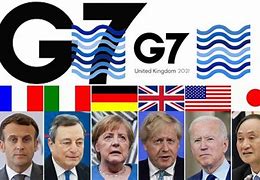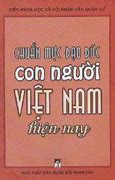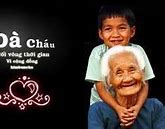Phần 2 Giới Thiệu Khu Nghỉ Dưỡng Trong Tiếng Anh
Hơn 48,000 đoạn phim của người bản ngữ
Hơn 48,000 đoạn phim của người bản ngữ
nghỉ dưỡng sức trong Tiếng Anh là gì?
nghỉ dưỡng sức trong Tiếng Anh là gì, định nghĩa, ý nghĩa và cách sử dụng. Dịch từ nghỉ dưỡng sức sang Tiếng Anh.
Tự hào được thực hiện bằng ♥ ở Ba Lan
Combinations with other parts of speech
Kết quả: 803, Thời gian: 0.0173
Bài Học Số 47: Giới Thiệu Về Việt Nam Bằng Tiếng Anh Phần 2 nằm trong chương trình tự học dịch thuật nhằm mục đích hướng dẫn các bạn học sinh, sinh viên, những người đi làm có thể hệ thống lại kiến thức tiếng Anh của bản thân và áp dụng thực tế vào trong công việc và cuộc sống. Chúng tôi hy vọng với bài học này sẽ giúp các bạn biết thêm về những câu nói giới thiệu về Việt Nam bằng tiếng Anh để thuận tiện hơn trong giao tiếp khi nói chuyện với người nước ngoài về đất nước Việt Nam của mình.
Vietnam has 54 ethnic groups. The Viet or Kinh (mainly in the plains), the majority people, account for 88% of the country’s population. 53 ethnic minorities totalling 5,5 million people live mostly in the mountain areas. The most important groups are: the Tay (960,000), the Nung (152,000), the Thai (770,000), the Muong (700,000), the H’Mong (11,000), the Zao (340,000), the Hoa (930,000), the Khmer (720,000), the Ba-Na (100,000), the Se Dang (73,000), the Gia-Rai (184,000), the Edeh (140,000)
THE VIETNAMESE LANGUAGES AND SCRIPTS
The common national language, Vietnamese (or Kinh, Viet) is spoken by over 80% of the population. The ethnic minorities in general speak Kinh in addition to their own languages. There are 3 linguistic families:
The Sino – Tibetan group (Tay, Nung, Thai, H’Mong, Han …)
The Mon-Khmer group (Se Dang, Ba-na, Khmer …)
The Malayo-Polynesian group (Gia Rai, Edeh, Cham …)
1)- Chinese Han ideograms – Used as the official and literary script until the beginning of the 20th Century
2)- The Nom script (devised in the 11th – 14th century) is derived from the ideographic Han script to transcribe the popular national language (Nom literature parallel to Han scholar literature until the beginning of the 20th Century)
3)- Quoc ngu: romanized script. First introduced in the 17th Century by the European missionaries to propagate catholicism, it was used by the French colonialists as the administrative and educative script. Then it became an efficient tool for patriotic movements. Now it is used in all fields of life in Vietnam.
Imbued with patriotic and humanitarian feelings, Vietnamese literature reflects the fight of the whole nation against foreign invasions, feudal, colonial and imperialist oppression and the need to tame a hostile nature.
+ 10th century until first half 19th century – One of the earliest texts is the Proclamation on the Transfer of the Capital to Hanoi (1010 – Thien do chieu). Until the 15th Century: works dealing with Buddhism, patriotic feelings, Confucian culture, love of nature (Generals Ly Thuong Kiet, Tran Hung Dao, – Monks: Khong Lo, Huyen Quang, – Kings: Tran Thai Tong, Tran Nhan Tong, – Scholars: Chu Van An, Truong Han Sieu, Ly Te Xuyen, Le Van Huu (history) …)
+ From the 15th Century on Confucianism became the Slate doctrine. Nguyen Trai (1380 – 1443) was an outstanding statesman, strategist, poet and writer. Proclamation of Victory over the Ngo (Binh Ngo dai cao), Poems in the national language (Quoc am thi tap). King Le Thanh Tong: national pride and Confucian themes. Ngo Si Lien (15th C): General history of Greater Viet (Dai Viet Su Ky toan thu, completed in 1479) …
16th Century: – Nguyen Binh Khiem (1491 – 1585) sang of the pleasures of retreat, of simple life close to nature and the people, attacking the faults of the feudal regime. Nguyen Du wrote the Vast Collection of legends of the supernatural Truyen Ky Man Luc) with a critical attitude…
+ 17th – 18th, first half 19th Century – Social and political feudal crisis. Development of Nom literature along with Han literature. The greatest classical poet, Nguyen Du (1765 – 1820) wrote Kieu (a long narrative poem relating the Tabulations of a girl forced to sell herself and experiencing many sufferings, -condemnation of feudal society). Three women-poets: Doan Thi Diem (Laments of a Warrior’s Wife: Chinh Phu Ngam), – Madame Thanh Quan (melancholic landscape, the fleeing of time), – Ho Xuan Huong (erotic poems, -vigorously attacked the hypocrisy of feudal society), – Le Quy Don (1726 – 1783) was an encyclopaedist. Nguyen Cong Tru (1778 – 1858) was a poet, a patriot and a man of action. Cao Ba Quat (1809 – 1851) the rebel poet, led a peasant uprising against the Court…
+ 19th Century (Second half) – French colonialism (1858) Patriotic literary movement whose best representative was the blind poet Nguyen Dinh Chieu(1822 – 1888): Luc Van Tien, a narrative poem. Two satirical poets: Nguyen Khuyen (1835 – 1909), Tran Te Xuong (1870 – 1907) …
+ 20th Century (first half) – Birth of a modern literature. Use of quoc ngu (romanized script).
The elders: those who wrote previous to, or whose first works dated from before the August Revolution in 1945:
– Phan Boi Chau (1867 – 1940): patriotic modernist scholar
– Phan Châu Trinh (1872-1925): patriotic modernist scholar
– Tan Da (1888-1939): Poet, the link between the old lyrical poetry and the new poetry of the 1930’s
– Ho Chi Minh (1890 – 1969): Prison Diary (Nguc Trung Nhat Ky), Poems
– Ngo Tat To (1894-1959): Novelist, -pre-revolutionary realism
– Hoang Ngoc Phach (1896 – 1973), To Tam, romantic novel
– Tu Mo (1900 – 1976), satirical poet
– Nguyen Cong Hoan (1903 – 1977): realist novelist. Works (Kep Tu Ben, The Actor Tu Ben – 1935), short stories
– Impasse (Buoc duong cung – 1938) novel
– The Lu (born 1907): “New Poetry” movement
– Thach Lam (1909 – 1941): short story writer
– Nguyen Tuan (1910-1987): Echoes and Shadows of a period (Vang bong mot thoi, 1940) short stories, The Black River (Song Da, 1960), essays
– Nguyen Huy Tuong (1912-1960), historical plays and novels
– Luu Trong Lu (born 1912): New Poetry Movement, Theatre
– Han Mac Tu (1912 – 1940): Catholic poet, leper
– Do Phon (born 1912) satirical poet
– Vu Trong Phung (1912 – 13/10/1939) satirical and realistic novels
– Thanh Tinh (1913 – 1988): short-story writer
– Xuan Dieu (1917 – 1985): New poetry movement, poet love: revolutionary poems
– Nam Cao (1917 – 1951): realist prose writer. Chi Pheo (1946), The eyes (Doi Mat), The exhaustion of life (Song Mon 1946)
– Nguyen Hong (1918-1982): realist short stories and novels. The thief (Bi vo, 1938)
– Huy Can (born 1919): New Poetry movement. Revolutionary poems
– Bui Hien (born 1919): short stories
– To Huu (born 1920): revolutionary poet
– Che Lan Vien (born 1920): New Poetry Movement, revolutionary poems
– To Hoai (born 1920): prose: Diary of a cricket (De men phieu luu ky – 1941). Stories of the North West (Truyen Tay Bac – 1954)
– Te Hanh (born 1921): New Poetry Movement and revolutionary poems
– Nguyen Dinh Thi (born 1924): revolutionary novels, poems, plays
Those who began to write after the August Revolution and during the first resistance (1946 – 1954):
– Quang Dung (1918 – 1988), poet
– Tran Dang (1920 – 1949), prose
– Chu Van (born 1920), novelist
– Tran Le Van (born 1920), poet
– Nong Quoc Chan (born 1924), ethnic minority poet
– Nguyen Van Bong (born 1921), novelist
– Nguyen Thanh Long (born 1925), short-story writer
– Hoang Trung Thong (born 1926), poet
– Huu Mai (born 1926), novelist
– Nguyen Thi (1928 – 1968), short stories
– Vu Tu Nam (born 1929), short-story writer
– Nguyen Khai (born 1930), short-story writer and novelist
– Phan Tu (Le Kham) born 1930, short-story writer and novelist
– Nguyen Minh Chau (born 1930), short-story writer and novelist
– Ho Phuong (born 1930), short-story writer and novelist
– Vu Thi Thuong (born 1921), short-story woman-writer
– Nguyen Ngoc (born 1932), novelist
– Nguyen Sang (born 1932), short-story writer and novelist
– Anh Duc (born 1935), short-story writer and novelist
– Nguyen kien (born 1935), short-story writer (countryside)
The generation of the second resistance:
– Thu Bon (born 1935), Poet ; Ma Van Khang (born 1935), novelist; – Le Van Thao (born 1936), prose; – Le Anh Xuan (1940 – 1968), poet; – Bang Viet (born 1941), poet; Duong Thi Minh Huong(1941-1969), woman poet; – Xuan Quynh (1942 – 1988), woman poet; – Pham Tien Duat (born 1942), poet; – Phan Thi Thanh Nhan (born 1947), woman poet; – Nguyen Thi Ngoc Tu (born 1943), woman novelist; – Do Chu (born 1944), prose writer; – Nguyen Khoa Diem (born 1948), poet; – Tran Dang Khoa (born 1958), poet; – Nguyen Manh Tuan, novelist; – Lưu Quang Vu, dramas, (died 1988); – Vu Hung, (children’s writer).
Nếu bạn có nhu cầu tìm kiếm một công việc dịch thuật thì hãy tham khảo bài viết tuyển dụng cộng tác viên dịch thuật hoặc liên hệ ngay với công ty dịch thuật CVN để được tư vấn miễn phí về lộ trình ứng tuyển các vị trí trong thời gian sớm nhất.
Xem thêm các bài viết tự học dịch thuật tiếng anh:
